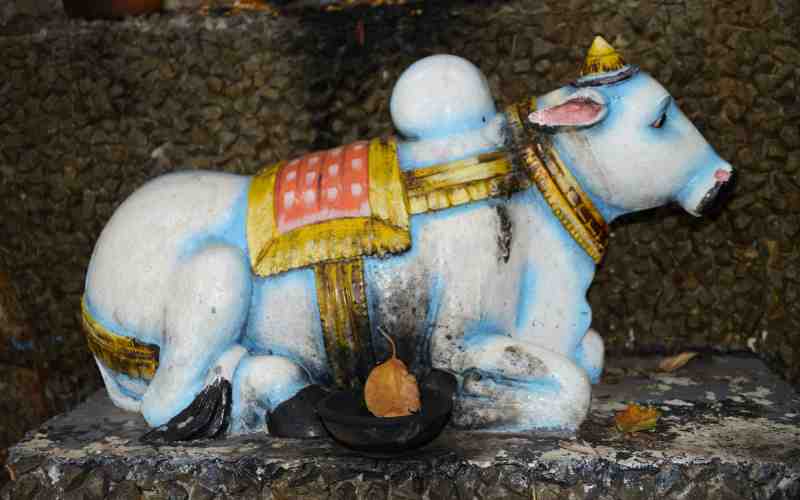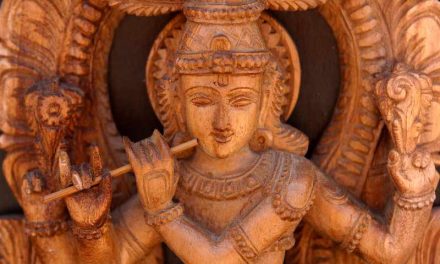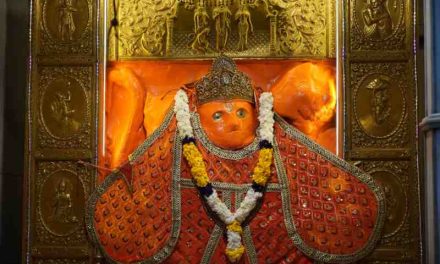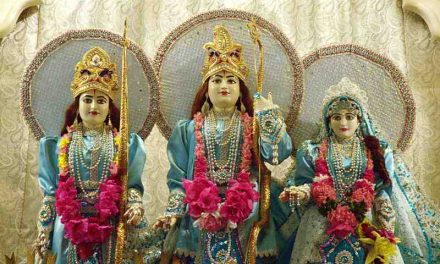The Vasudeva Upanishad is one of the 108 Upanishads, the ancient Hindu texts that explore the nature of reality, the self, and the supreme being. It belongs to the Vaishnava sect, which worships Vishnu and his avatar Krishna, and is attached to the Samaveda, one of the four Vedas. The text is composed as a dialogue between Krishna and the sage Narada, who asks him about the rules and significance of Urdhva Pundra, the Vaishnava tilaka or sacred mark. In this blog post, we will examine some of the ethical teachings that emerge from this text, which are relevant for both Vaishnavas and non-Vaishnavas alike.
The meaning of Urdhva Pundra
Urdhva Pundra means “the upward three lines”, which refers to the mark that Vaishnavas apply on their forehead and other parts of their body with a paste made from Gopichandana, a type of clay that is said to originate from Vaikuntha, Vishnu’s abode. The mark symbolizes Vishnu-Krishna, who is identified with Brahman, the supreme reality that is non-dual, infinite, and blissful. The mark also represents the three paths of knowledge (jnana), devotion (bhakti), and action (karma), which lead to liberation from worldly existence (samsara). By applying the mark, Vaishnavas express their allegiance to Vishnu-Krishna and their aspiration to attain his grace and vision.
The importance of devotion
The Vasudeva Upanishad emphasizes that devotion (bhakti) is the most effective and accessible means of realizing Vishnu-Krishna’s indestructible nature (achyuta). Devotion is defined as “the constant meditation on Vishnu-Krishna with love and faith”. Devotion can be expressed through various practices, such as chanting his names, singing his praises, listening to his stories, serving his devotees, offering him flowers, fruits, and water, and surrendering one’s actions and fruits to him. Devotion purifies the mind, removes ignorance and attachment, and awakens the inner vision of Vishnu-Krishna’s presence in oneself and in all beings.
The value of non-violence
The Vasudeva Upanishad also teaches that non-violence (ahimsa) is a fundamental virtue for all seekers of truth. Non-violence means not harming any living being by thought, word, or deed. Non-violence is based on the recognition that all beings are manifestations of Vishnu-Krishna’s energy (shakti) and are endowed with a spark of his consciousness (chit). Non-violence also implies compassion (karuna), kindness (daya), generosity (dana), forgiveness (kshama), and tolerance (sahana). By practicing non-violence, one cultivates peace (shanti), harmony (sauhrida), and joy (ananda) in oneself and in others.
The vision of universal family
The Vasudeva Upanishad also echoes the famous phrase from the Maha Upanishad: “Vasudhaiva Kutumbakam”, which means “The World Is One Family”. This phrase expresses the vision of unity in diversity that pervades Hindu thought. It implies that all beings are related to each other as children of Vishnu-Krishna, who is the father (pita), mother (mata), friend (sakha), lord (isha), and soul (atma) of all. It also implies that one should respect, serve, and love all beings as one’s own kin, without discrimination or partiality. By adopting this vision, one transcends the narrow boundaries of egoism (ahamkara), selfishness (mamatva), and attachment (raga), and attains a state of universal love (prema) and bliss (ananda).
Conclusion
The Vasudeva Upanishad is a valuable source of ethical guidance for anyone who wishes to follow the path of Vishnu-Krishna. It teaches us how to apply the mark of Urdhva Pundra as a sign of our devotion and dedication to him. It teaches us how to cultivate devotion as a means of attaining his grace and vision. It teaches us how to practice non-violence as a way of honoring his presence in all beings. And it teaches us how to embrace the vision of universal family as a way of expressing our love for him. By following these teachings, we can hope to achieve liberation from samsara and union with Vishnu-Krishna, who is the source and goal of all existence.





